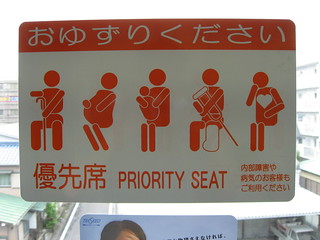
In the 1950s, pregnant women were told by their doctors to stay at home and get lots of bed rest, but the days of staying off your feet and not reaching for high shelves are over. Now, as long as you have no medical complications, it’s considered perfectly safe to travel throughout your pregnancy. The American College of Obstetrics and Gynecology says that women can safely fly in airplanes through the 36th week – one month before delivery – but you may be able to travel right up to your due date with a doctor’s clearance. Still, if you’re planning a big vacation and not just a trip home for the holidays, being eight months pregnant isn’t always ideal. Most women prefer to go on vacation in their second trimester, once you’ve gotten past the morning sickness of the first trimester and before the inevitable fatigue of the third. Depending on where you’re going and if you travel by air, land, or sea, there are important tips and information to keep in mind to make sure you’re staying safe while journeying for two.
1. Before You Leave Home
When planning your trip, it’s important to know how easy it will be to access medical facilities in an emergency, especially if you are headed overseas. If you’re going on a cruise, you should make sure there’s a medical professional on board who can handle your needs. Your doctor will talk to you about any health concerns associated with traveling in extreme heat or cold and how to stay healthy and hydrated in a foreign country. As soon as you have your vacation booked, start researching travel insurance plans online. You can compare at Kanetix if you’re looking for policies that are specifically tailored for pregnant women. Pregnancy isn’t usually covered under general travel insurance policies, but you can get a pregnant travel insurance package that covers medical emergencies up to one month before your due date, as long as you don’t travel against a doctor’s advice.
2. Your Travel Necessities

Dehydration is a big concern, especially when you’re traveling overseas, so pregnant women are advised to carry bottled water and make sure they drink plenty of fluids throughout the day. The dry air on planes can also make you more prone to blood clots if you’re not properly hydrated. Compression stockings on long flights can help, and you should definitely wear them if you’re flying over six hours. Also keep a good supply of snacks on hand. If you’re traveling on a ship, food can often help settle your stomach. or you can take motion sickness pills. Make sure you bring comfortable clothes and remember to think about your swollen feet. Wear shoes it’s easy to take off and on to stretch, relax, and increase circulation while you’re in the air or on the road. Of course, you should also pack your prenatal records, contact information for your doctor and other important specialists, and any prenatal vitamins or medications you’re going to need.
3. Know Your Limits
Your first considerations while traveling should be comfort, and that means you have to practice safe habits as well as dress appropriately. Planes travel at a high altitude, which can contribute to nausea, and you should avoid gassy foods to help yourself relax during the flight. They also involve tight spaces, narrow aisles, and tiny restrooms – the same as buses, trains, and other forms of travel which can prove difficult for pregnant women. That’s why you shouldn’t overestimate how long you can spend getting from one destination to the next. Anything over six hours raises your chances for blood clots, sickness, and fatigue. Of course, the exception may be if you’re traveling by car, because you have plenty of opportunities to rest, eat, and exercise. Getting up and walking around every two hours or so will improve blood flow and decrease your chance of cramping in your legs.

Travel can be hectic, uncomfortable, and even nauseating for many people, but pregnant women may have to take extra precautions. Don’t be afraid to communicate with flight attendants, hotel staff, and other people you meet along the way if you need help or accommodation. As long as you take good care of yourself, a vacation while you’re pregnant isn’t a bad idea at all. It can be a wonderful way to prepare you for the sleepless nights and crazy schedule you have ahead of you. The modern pregnant woman has no trouble seeing the world, because it’s a lot safer and more exciting than your grandmother’s generation knew.
Author Daniel Watson writes articles for insurance sites. Follow him on Twitter at @daniel_w2012.